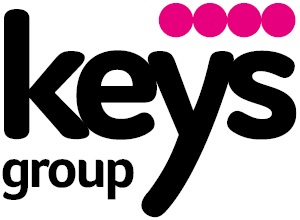Enhancing staff wellbeing: the pivotal role of Educational Psychologists in schools

The Teacher Wellbeing Index 2023 (Education Support, 2023) paints a concerning picture of the current state of wellbeing among education staff.
According to the report, 78% of education staff are experiencing stress, a 3% increase from the previous year, and alarmingly 36% of teachers have faced burnout, a 9% increase from 2022. These figures underscore an overall decline in teacher wellbeing over the past year. One of the key contributing factors identified is the organisational culture within educational institutions, highlighting the need for systemic changes to address these growing challenges.
The systemic approach of Educational Psychologists
Educational Psychology is well placed to support schools in developing a culture that emphasises the importance of emotional wellbeing for all staff members. As Educational Psychologists (EPs) we have the knowledge of psychological theories and literature and a critical understanding of the psychological models relevant to wellbeing and emotional resilience. Furthermore, we liaise with senior school staff in a professional capacity and have therefore developed a practical insight into the challenges and barriers faced by those working on the ground in educational settings.
A focus on staff wellbeing through collective efficacy and Appreciative Inquiry
In October 2020 the EPS School Staff Wellbeing Project team was established in response to the Covid-19 pandemic. The team members are from the Educational Psychology Service in Northern Ireland (NI). This team, which initially comprised six EPs and two Assistant EPs, were motivated to create a training package which would support our school-based educational staff.
The principal aim of the project was to support schools in creating a positive school culture with a focus on staff wellbeing. One of the underlying psychological theories influencing the design of the training was collective efficacy (Bandura, 1997).
Collective efficacy is related to higher levels of organisational commitment (Ware & Kitsantas, 2007), job satisfaction (Donohoo, 2018; Yurt, 2022) and lower levels of teacher burnout (Yurt, 2022). The design of our training programme was deeply influenced by the principles of Appreciative Inquiry (Cooperrider, Stavros & Whitney, 2008), an approach which emphasises exploring and amplifying strengths within an organisation. We guided schools to identify and focus on what works well in their setting, creating a positive foundation for growth.
Training package overview
The project team engaged with schools and nurseries to provide evidence-based training through a series of webinars that focused on staff wellbeing which focused on:
- Webinar 1: School Culture, collective efficacy and Appreciative Inquiry.
- Webinar 2: Teaching stressors, staff burnout and how to identify the signs and protective factors.
- Webinar 3: The role of the Health and Wellbeing Lead and developing a staff wellbeing policy.
- Webinar 4: Ten ways to wellbeing and the bioecological model (Bronfenbrenner, 1994).
Participants were also provided with a handbook which accompanied the webinars. Following training participants were given the opportunity to attend wellbeing focused cluster groups alongside other schools in NI. Schools that wished to take part in the project were required to nominate a member of their senior management team to take on the role of Health and Wellbeing Lead (HWL) for their school. Aspects of the HWL role would include acting as an ambassador for the staff wellbeing policy, promoting a positive school culture, and providing support and signposting to fellow colleagues.
Positive impact of the training
Since the training commenced in 2021, four cohorts with a total of 200 participants from 188 schools across NI have taken part in the training. These cohorts contained a mix of educational settings. Funding was secured from the Department of Education, NI, to enable school staff to attend the webinars and to provide protected time to plan how the training could be implemented successfully in their school.
We used thematic analysis as part of the evaluation. One of the themes identified specifically focused on the training format which was adopted (Braun & Clarke, 2006).
“….fantastic to attend a course that has time built into actually action and implement changes”
Participant comment post-evaluation
We realised the critical need to secure funding each time to enable this successful format to be continued.
We used The Kirkpatrick Evaluation Model (1976) in the evaluating of the training, which remains the most commonly used for evaluating training (Alsalamah & Callinan, 2022).
A key finding of the evaluation is that participants felt supported and encouraged throughout the training. We anticipate that this support will continue through the facilitation of cluster groups. A more comprehensive evaluation of the training is currently being completed which involves one of the Trainee Educational Psychologists from the Doctorate in Educational, Child and Adolescent Psychology (DECAP) at Queens University Belfast (QUB).
Future pathways: educational psychologists supporting wellbeing
The principal limitation identified by the project team members following completion of the training was the time constraint. Participants’ responses to the programme were almost uniformly positive, and any recommendations put forward by school staff following completion of the training pertained to the elaboration of core topics rather than amendments to content itself. As EPs we are often constrained by core duties which can impose a significant limitation on the work which we can undertake.
EPs hold a unique position that allows them to operate systemically within school environments, leveraging their expertise to foster positive changes. Many professionals in this field are already engaging in such work, demonstrating the profound impact they can have on education. However, there is always room for expansion in these efforts. Recognising and valuing the role of EPs in systemic work is crucial. By doing so, we not only acknowledge their contributions but also pave the way for further advancements in such areas as school wellbeing. It is important that educational systems and stakeholders recognise this potential and invest in it, allowing EPs to broaden their reach and deepen their impact.
We have just secured more funding from DE which will enable us to run the training programme again this academic year. The impact of our training is perhaps best encapsulated by the words of a school leader who attended: “I am leaving the course with a completely different outlook.” Such transformative experiences reaffirm our dedication and motivation in the work we do, underscoring the significant impact EPs can have in influencing positive systemic change.
Carol’s EP Reach-out webinar on enhancing staff wellbeing
References
Alsalamah, A., & Callinan, C. (2022). The Kirkpatrick model for training evaluation: bibliometric analysis after 60 years (1959–2020). Industrial and Commercial Training, 54(1), 36-63.
Bandura, A. (1997). Self-efficacy: The exercise of control. New York: W.H. Freeman.
Braun, V., & Clarke, V. (2006). Using thematic analysis in psychology. Qualitative research in psychology, 3(2), 77-101.
Bronfenbrenner, U. (1994). Ecological models of human development. International encyclopedia of education, 3(2), 37-43.
Cooperrider, D. L., Stavros, J. M., & Whitney, D. (2008). The appreciative inquiry handbook: For leaders of change. Berrett-Koehler Publishers.
Donohoo, J. (2018). Collective teacher efficacy research: Productive patterns of behaviour and other positive consequences. Journal of educational change, 19(3), 323-345.
Education Support. (2023). Teacher Wellbeing Index 2023. Retrieved 26 January 2024: Teacher Wellbeing Index: mental health & wellbeing research (educationsupport.org.uk)
Yurt, E. (2022). Collective teacher self-efficacy and burnout: The mediator role of job satisfaction. International Journal of Modern Education Studies, 6(1), 51-69.
Klassen, R. M., Usher, E. L., & Bong, M. (2010). Teachers’ collective efficacy, job satisfaction, and job stress in cross-cultural context. The Journal of Experimental Education, 78(4), 464-486.
Ware, H., & Kitsantas, A. (2007). Teacher and collective efficacy beliefs as predictors of professional commitment. The journal of educational research, 100(5), 303-310.




